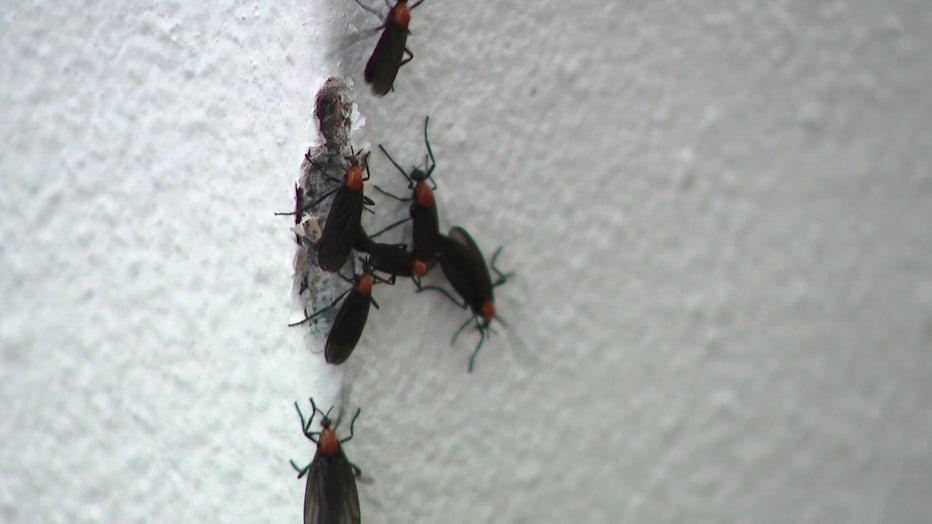Lovebug facts: Car engines actually attract Florida's springtime pest

Lovebug season is here and your car isn't happy about it
Some people don't mind him. Others hate them. There's no avoiding I'm lovebug season is here. David O the Science Pro tells us what we can do about them.
TAMPA, Fla. - Some people don't mind him. Others hate them. But in Florida, there's no avoiding lovebugs.
Also called honeymoon flies, lovebugs are not native to Florida. They migrated to the United States from Central America back in the 1920s. Floridians started noticing them in the 1940s.

For about five weeks in April and May, they’re everywhere, especially on the front of cars in the Sunshine State.
You can spot them easily. Two lovebugs are typically hitched together. They have a deep black coloring and red on their heads. They're typically about 6 to 9 millimeters in length.
Lovebug season: The bugs Floridians love to hate are back
They spend most of their lifecycle on the ground as larvae, and then females lay their eggs – up to 300 of them -- on the ground. After their larvae stage, the fly breaks out and immediately grasps a partner.
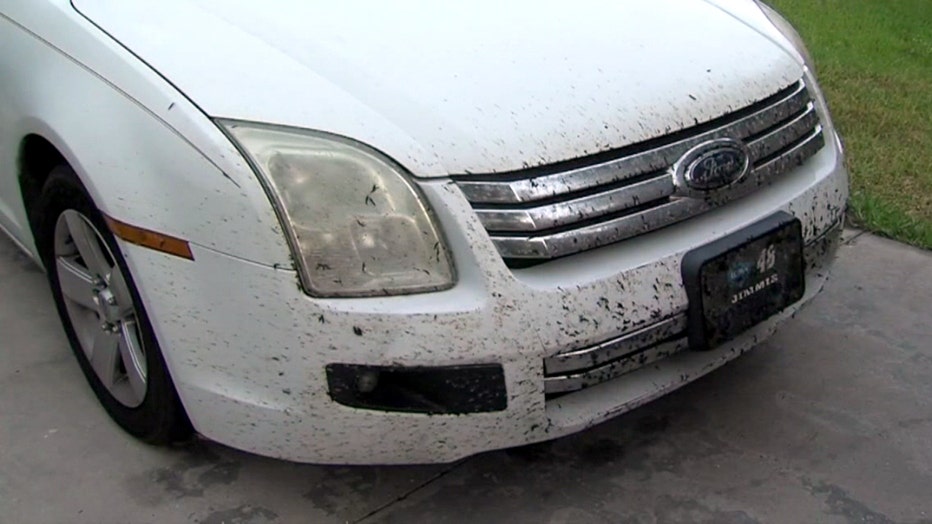
After they mate, which is what they're doing when they’re paired up and flying around, the male dies.
But the female continues to drag the male around by its abdomen until she lays her eggs. Then she will die, too.
Lovebugs are not technically bugs. They’re flies, and they only live for a couple of days after emerging from the larvae stage.
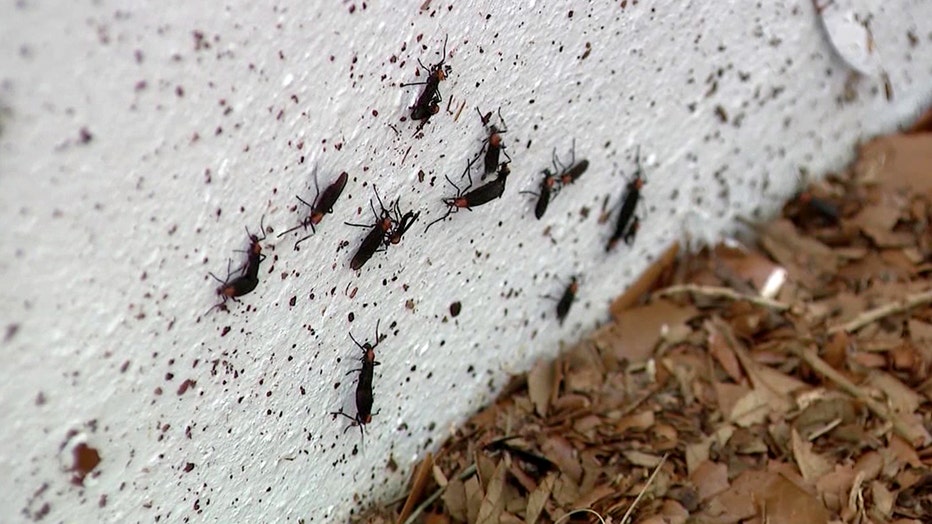
They thrive in warm climates and humidity; 85° is their sweet spot. And they really love the gasses put off by car engines.
They also don’t pose any threat to humans, directly, but they can be annoying and possibly damage the paint and other parts of your car.
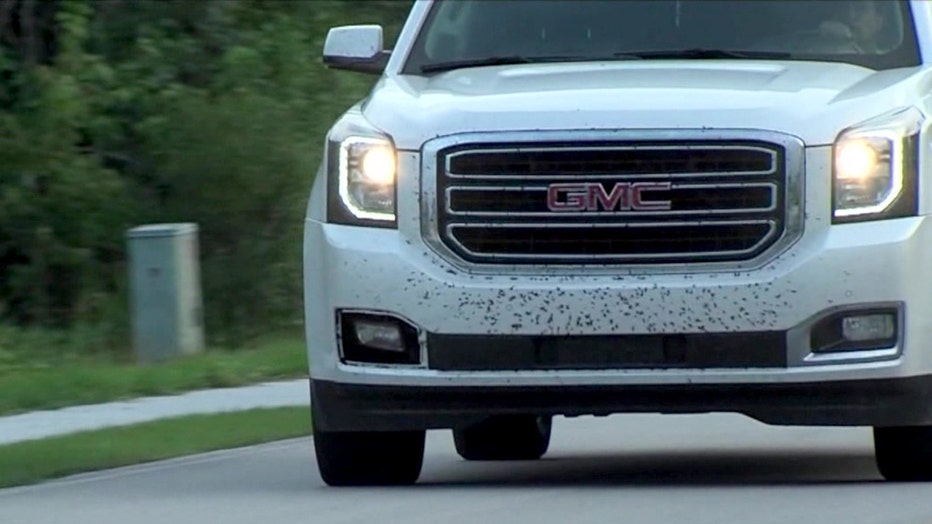
If lovebugs aren’t cleaned off, they become acidic in the Florida heat and remove car paint.
They can get into the radiator or other car parts that can become clogged with lovebugs.
As annoying as lovebugs can be, there is a positive. They feed on organic matter on the ground like leaves and grass clippings, helping clean things up a little.
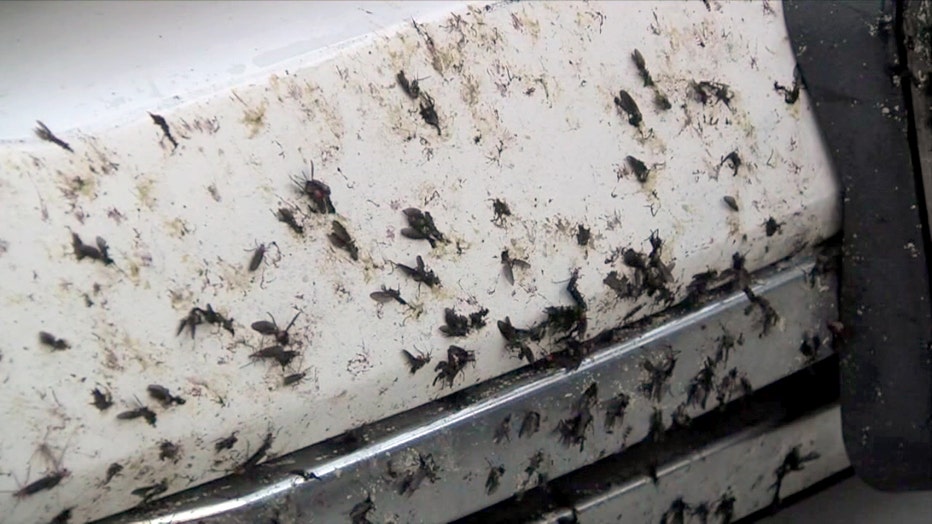
According to FOX 13 Meteorologist Dave Osterberg, they’re here to stay – and at least they’re not a major health threat.
"They're not going to hurt you. They're not going to bite. They don't sting. They don't hurt pets. So, you're good to go," Dave said.
